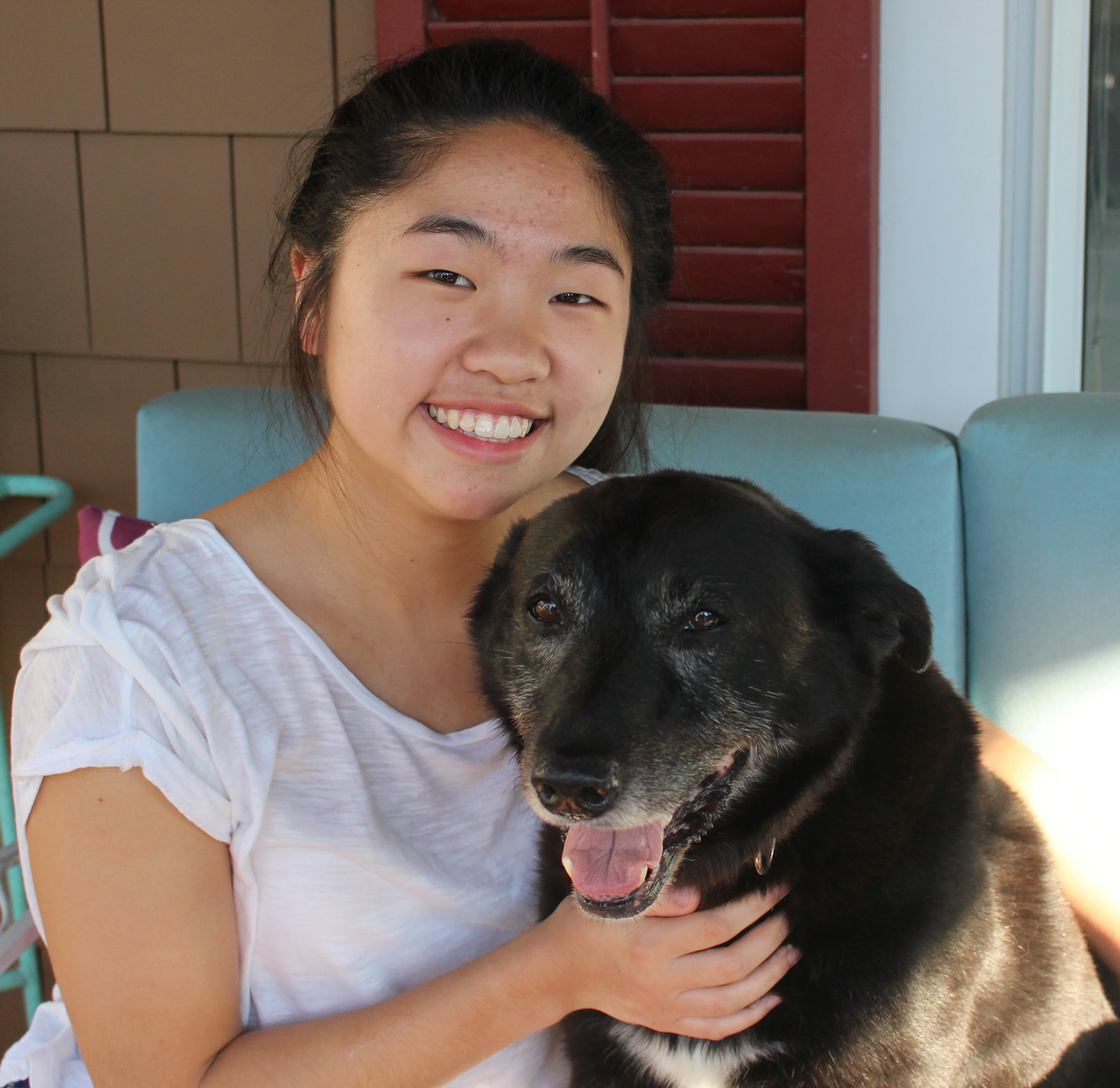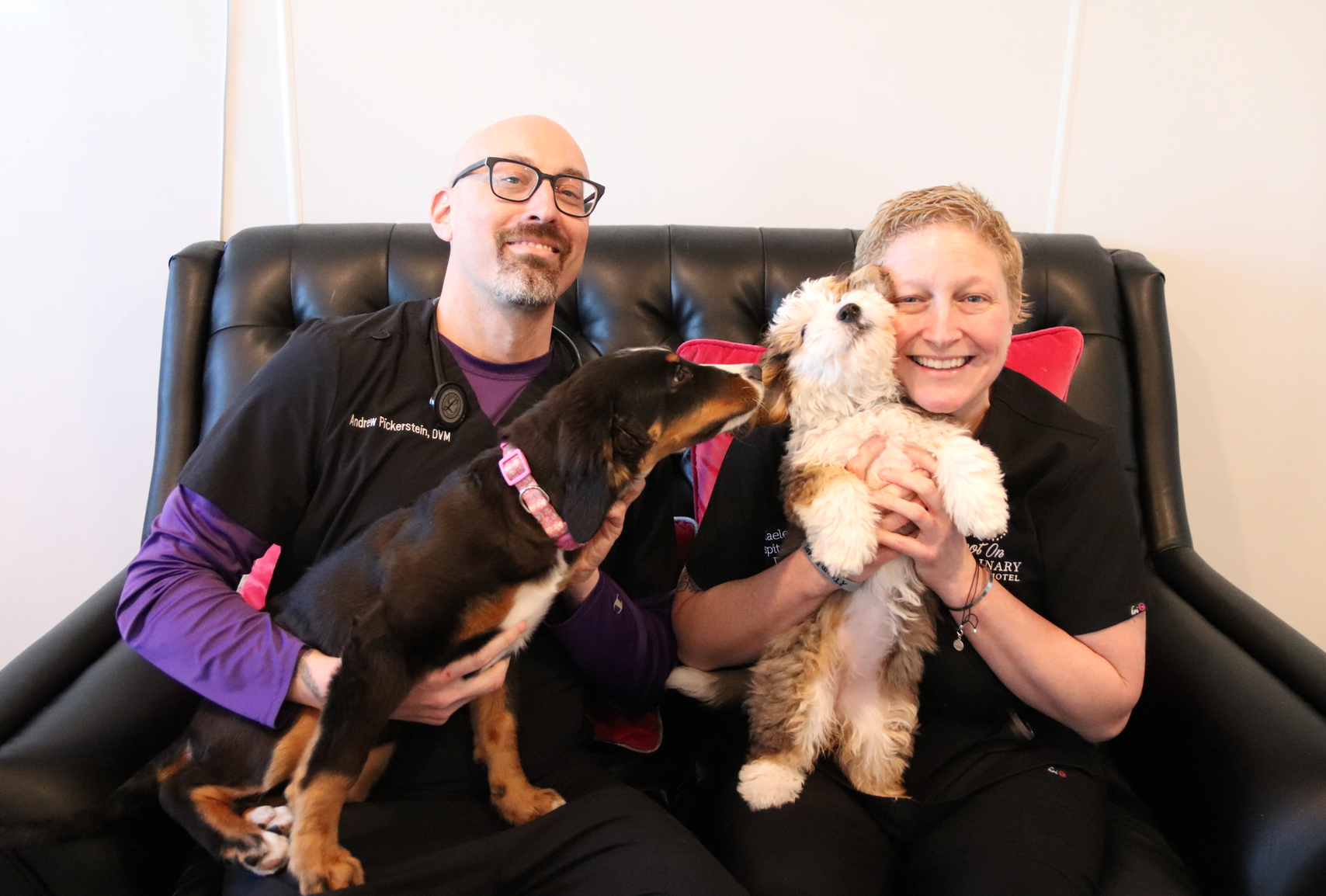With COVID-19 threatening to disrupt daily life in Greenwich and neighboring towns, Veterinarian Dr. Andrew Pickerstein at Spot On Veterinary Hospital & Hotel countered some of the misinformation circulating about COVID-19 and pets.
“Dogs do not get this novel coronavirus, COVID-19,” Pickerstein explained. “Although a couple dogs in Asia did test positive on a surface swab, they weren’t actually infected with it.”
“It can be on your kitchen counter, and your dog can put his snout on the surface,” he said. “The virus can survive in the environment.”
Pickerstein’s advice was simple: Wash your hands, wash your dog, and stay away from places where people congregate.
As far as disaster preparedness, in addition to sanitary procedures, Pickerstein recommended keeping a supply of several weeks of pet food and pet medications on hand.
“If we do have an interruption in any of the supply lines for medications, there might be an interruption,” he said. “If your dog is on medications, make sure you have ample refills or a supply for at least a month or so, just in case there is difficulty getting any of those drugs.”
According to the US Centers for Disease Control and Prevention, no animals in the US have been identified with the virus, and there is no evidence that dogs or other pets can spread COVID-19.
The CDC recommends people who are sick with COVID-19 restrict contact with pets and other animals, just like one would restrict contact with other people.
When possible, a member of the household other than the person who is ill should care for any animals in the household.
Those infected with COVID-19 should avoid petting, snuggling, being kissed or licked, and sharing food with animals.
Those who must care for a pet, or who will be around animals while sick, should wear an appropriate face mask and wash hands thoroughly before and after interacting with those animals.
While many people had never heard the word coronavirus until recently, it is a broad term, and coronaviruses are common throughout the world.
The novel coronavirus disease 2019 (abbreviated “COVID-19“) is a unique virus.
Though COVID-19 may have originated from wildlife, it is infectious only to humans.

Dogs will get different types of coronaviruses, but that has nothing to do with the current outbreak of COVID-19.
Dr. Pickerstein said that if health protocols are enacted and residents are asked to work and study remotely, there may be an upside.
“Walk around with your dog,” he said. “Isolation has its perks. Dogs won’t contribute to this (outbreak) in any sort of meaningful way.”
Lastly, Pickerstein said that while dogs do get the flu, the dog flu is a totally different virus from COVID-19. “We do vaccinate for the dog flu,” he said.
Spot On Veterinary Hospital & Hotel is located at 184 Selleck Street in Stamford, CT 06902.

Dr. Andrew Pickerstein and Hospital & Hotel Director at Spot On Kaeley Blum. March 9, 2020 Photo: Leslie Yager